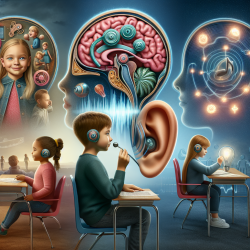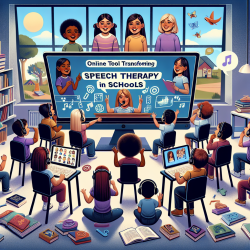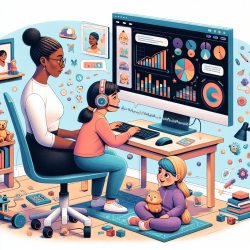Unilateral hearing loss (UHL) in children presents unique challenges, particularly in educational settings. These children often experience increased listening effort and decreased speech recognition in noisy environments, which can impact their academic performance and social interactions. Recent research has focused on two key intervention technologies: Remote Microphone Systems (RMS) and Contralateral Routing of Signal (CROS) systems. This blog explores the findings of a study examining their effects on listening effort and speech recognition.
The Study: Key Findings
The research titled "Listening Effort in School-Aged Children With Limited Useable Hearing Unilaterally" evaluated the effects of RMS and CROS systems on speech recognition and listening effort among school-aged children with limited unilateral hearing. The study involved 19 children aged 7-12 years who completed a digit triplet recognition task under various conditions.
- Remote Microphone Systems (RMS): The study found that RMS significantly improved digit triplet recognition across all loudspeaker conditions. It also reduced verbal response times, indicating decreased listening effort.
- Contralateral Routing of Signal (CROS) Systems: While CROS systems improved speech recognition and listening effort in indirect conditions, they were less effective than RMS overall.
Implications for Practitioners
The findings suggest that RMS provides the most consistent benefits for children with UHL in classroom settings. Practitioners should consider incorporating RMS into their intervention strategies to enhance speech recognition and reduce listening effort for these students.
Encouraging Further Research
While this study provides valuable insights, further research is needed to explore the long-term effects of these technologies on academic performance and social integration. Future studies could also examine the efficacy of combining RMS with other assistive technologies or explore their impact in diverse classroom environments.
Conclusion
For educators and audiologists working with children who have UHL, understanding the benefits of RMS and CROS systems is crucial. By implementing these technologies, practitioners can help reduce listening effort, improve speech recognition, and ultimately enhance educational outcomes for these students.
To read the original research paper, please follow this link: Listening Effort in School-Aged Children With Limited Useable Hearing Unilaterally: Examining the Effects of a Personal, Digital Remote Microphone System and a Contralateral Routing of Signal System.










